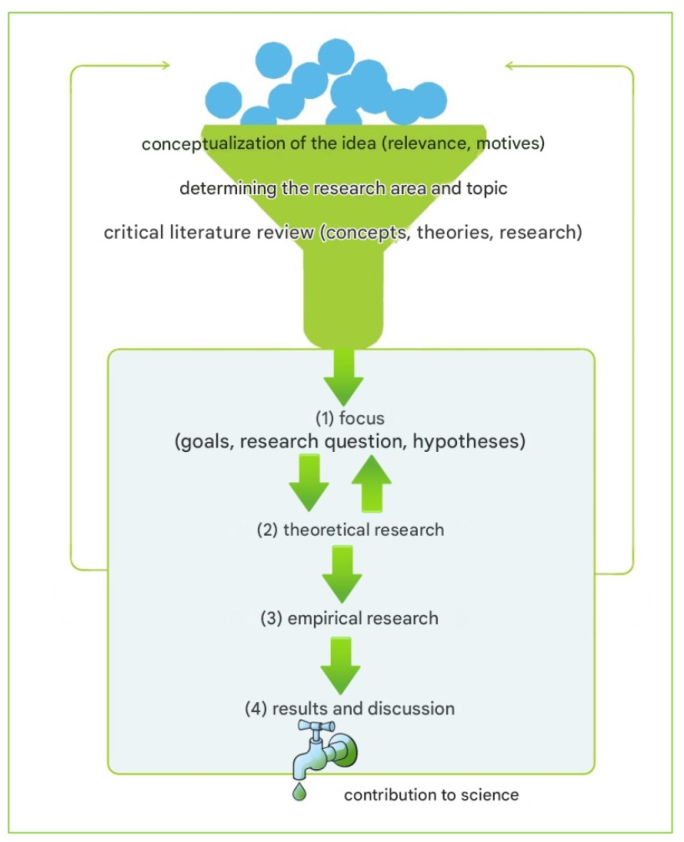What is a disposition? A guide to the research plan phases for successful research
A disposition is a research plan created for the purpose of a bachelor's thesis, master's thesis, doctoral dissertation, etc. [1]. It is a precise and pre-prepared plan, where all aspects of the research are defined, from the various content aspects of the research to the various "project" aspects, such as the research timeline [1, 2]. The research plan guides the entire research process [1]. Just like a detailed house construction plan, the disposition ensures that all aspects of the research are clearly defined, from content goals to project timeline [1, 2].
Key phases of the research plan
The research plan typically describes all the research phases listed below [3]:
Conceptualization of the idea: In this initial phase, the researcher formulates the basic idea of the research, answering the questions what, why, who, where, and when to research . It is important to focus on topics that are personally interesting and useful to you . The motives for research can be the desire to solve problems, support decision-making, or the personal interest of the researcher .
Determination of the research field and topic: The research field should be divided into narrower sub-fields . This phase also includes determining the scientific disciplines that will be covered in the research .
Determination of focus (research question): Based on the previous phases, working research questions are formulated, from which the main research question arises . It is recommended to formulate several working questions before determining the central research question . The main research question must be clear, researchable, and related to theory . It is important that the research objectives are aligned with the research questions .
Critical literature review: In this phase, all available publications, articles, and other sources related to the research field are reviewed . The goal is to gain a comprehensive overview of existing knowledge and identify potential gaps . With a critical review of the literature, the researcher demonstrates a high level of understanding of the field and key theories .
Empirical research: For the purposes of the research plan, it is not necessary for this phase to be fully completed . Usually, only the methods, techniques, and other important aspects that the researcher anticipates for this research phase are determined :
Determining whether a qualitative, quantitative, or mixed method will be used .
Determining the target population and sample, including the method of selecting units for the sample .
Determining data collection techniques .
Determining methods of data analysis .
Expected results and contribution to science: The researcher presents the expected results of the research and explains how the research will contribute to science . It is also important to define the limitations of the research . This should take into account testing and improving theories, expanding existing knowledge .
Iterative process
The research process is not necessarily linear, but iterative . This means that some phases can be repeated . For example, theoretical research may lead to a redefinition of the research focus, which requires a repetition of the theoretical research .




